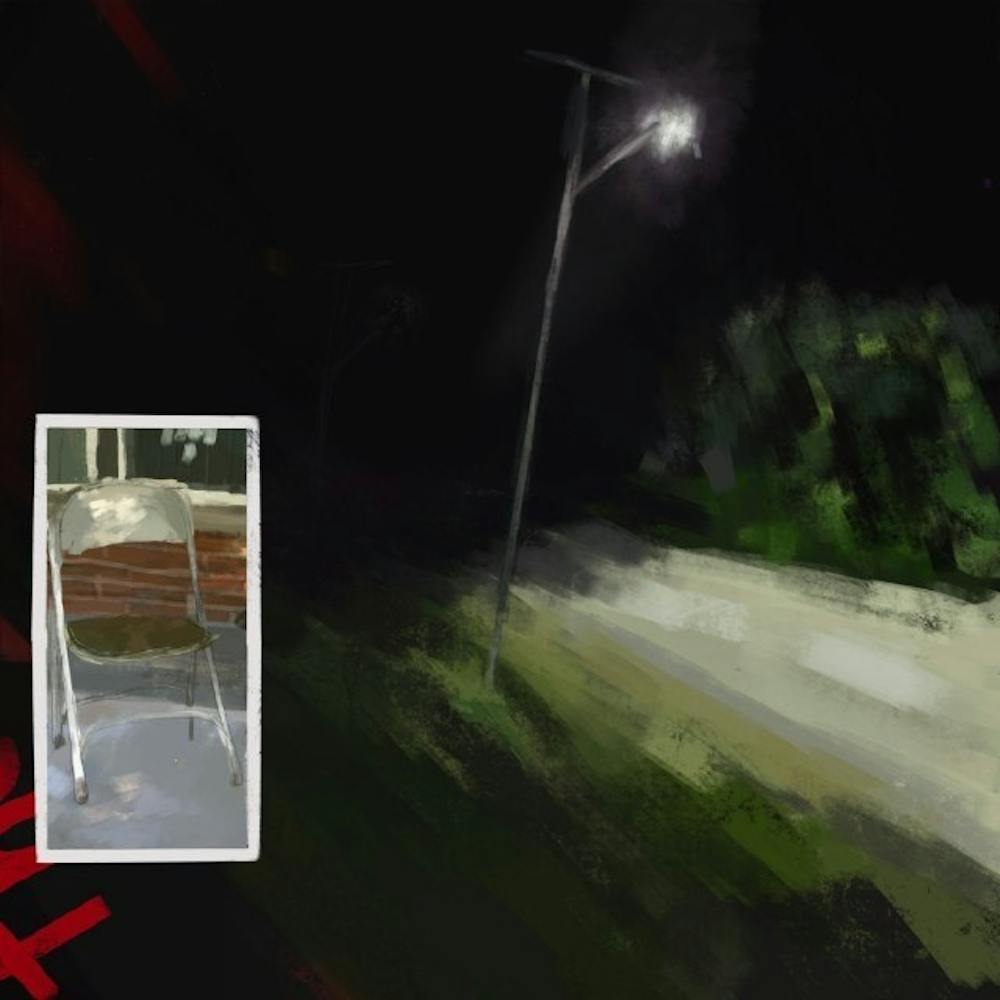Album: Making a Door Less Open
Artist: Car Seat Headrest
Label: Matador Records
Release Date: May 1
Rating: 6/10
It’s been a strange road for Car Seat Headrest since signing to Matador Records in 2015.
Originally the solo lo-fi indie project of singer/guitar player Will Toledo, the project quickly rose to a level of underground fame with its 2011 album “Twin Fantasy.” From there, he released several albums, and when he was signed, the project eventually expanded into a quartet.
Since then, the group has released four studio albums, two of which were re-recordings of old material (2015’s “Teens of Style” and 2018’s complete redo of “Twin Fantasy”), an album of new material and unreleased old material (2016’s “Teens of Denial”) and now a new record.
“Making a Door Less Open” stands out against the group’s previous label-signed albums because it’s the first album consisting of strictly new material with equal input from the whole group.
It was also preceded with a promise of experimentation. Up to “MADLO,” Car Seat Headrest had been a strictly indie-rock project. Occasionally, the group would branch out with experimental song structures and electronic instrumentation, but never made the distinction until “MADLO” that the project would feature a newer and more experimental CSH.
But in transitioning to a full band and experimenting with new sounds, “MADLO” does not find CSH operating at its usual level of quality.
Many of the album’s cuts feature Toledo singing over indie-rock guitars, synthesizers and drum machines, but each song tries to do something slightly different with that formula.
On tracks like lead single “Can’t Cool Me Down,” the formula passes with flying colors. Toledo’s emotional delivery of “Cool water on my brow, can’t cool me down / No, it can’t cool me down” acts as an interesting contrast to its moderately danceable and minimalistic instrumentation. It is somewhat reminiscent of Talking Heads at points, but stands out enough to distinguish itself as the work of CSH.
The album’s climax and other major highlight “There Must Be More Than Blood” is a nearly-eight-minute track that is reminiscent of the band’s earlier long tracks. It features a slow groove that builds in intensity as Toledo repeats “There must be more than blood that holds us together / There must be more than wind that takes us away,” until it reaches a satisfying end.
Tracks like these showcase what made Car Seat Headrest the definitive indie rock act of the last decade.
But the majority of tracks are not like these ones. They range from merely decent to the worst output of the group’s career.
The worst offender on the album is without a doubt “Hollywood.” The track, which is a takedown of Hollywood’s fickle culture and a criticism of the industry’s unfortunate reputation of grooming minors, musically sounds frankly like a Weezer parody.
The main guitar hook is obnoxious and Toledo’s usually emotional vocals are reduced to a murmur as drummer and vocalist Andrew Katz screams his brains out with lines like “Hop inside, come see my movie! Catch a ride, it’s kinda groovy!” It is a laughably bad song and a stain on the reputation of the band.
“Hymn (Remix)” takes the un-remixed version of the song which can only be heard on the vinyl edition and turns it into a glitchy electronic piece that sounds less like the work of a skilled electronic artist and more a first attempt in a Digital Audio Workstation.
But while these two cuts are easily the worst on the album, absolutely none of the remaining tracks come even close to the material that CSH built its name on. Songs like “Weightlifters,” “Martin” and “Life Worth Missing” sound like the band is sleepwalking and wouldn’t be notable tracks on any of their post-2014 output.
“MADLO” doesn’t really work as a cohesive album experience, nor was it supposed to, as the press release for the album mentions a desire to make an album full of standalone songs. But it doesn’t exactly work in that context either.
Even as an experiment it doesn’t work. These songs are not experimental in the grand scheme of things. “Hollywood,” “Hymn (Remix)” and the electronic “Deadlines (Thoughtful)” may be out of CSH’s wheelhouse, but they are more conventional-sounding than anything the band has released up to this point.
Maybe this is just a transitional period for the group that will lead to a chance for it to break out of its shell for a stronger follow-up in a couple years. But this is yet to be seen, and for now “MADLO” is one of CSH’s weakest and most confused albums to date.
Alex Whetham is the Senior Arts Editor at the UB Spectrum and can be reached at alex.whetham@ubspectrum or on Twitter @alexo774.
Alex Whetham is an asst. arts editor for The Spectrum.





